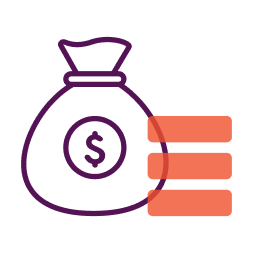On December 22, 2020 Congress passed the stimulus bill which provides for new for Paycheck Protection Program loans and other small business relief. Read more about that legislation and apply for a PPP loan here.
This article was updated June 5, 2020 to reflect changes in the Paycheck Protection Program Flexibility Act of 2020.
There is an SBA loan deferment process that applies to Paycheck Protection Plan (PPP) loans. It’s pretty straightforward and something you will need to be aware of if your PPP loan application was approved and you are waiting for your funds to be disbursed. In other words, you can defer PPP loan payments.
On guidance dated April 15, 2020, the SBA deferment process looks like this for the PPP:
“You will not have to make any payments for six months following the date of disbursement of the loan. However, interest will continue to accrue on PPP loans during this six-month deferment. The Act authorizes the Administrator to defer loan payments for up to one year. The Administrator [Jovita Carranza, SBA Administrator] determined, in consultation the Secretary [Steven Mnuchin, Secretary of the Treasury], that a six-month deferment period is appropriate in light of the modest interest rate (one percent) on PPP loans and the loan forgiveness provisions contained in the Act.”
In other words, you won’t be required to make any payments on your PPP loan for six months, but during that time interest will still accrue that will need to be repaid.
Update: Under the PPP Flexibility Act of 2020, payments will be deferred until “the date on which the amount of forgiveness determined under section 1106 of the CARES Act is remitted to the lender.” A borrower has ten months to apply for forgiveness or must start making payments.
Loan Forgiveness and PPP Loan Payment Deferment
Although interest accrues you will be able to apply for loan forgiveness, including the accrued interest. Loan forgiveness is a little more complicated, but is described within the same guidance:
“The amount of loan forgiveness can be up to the full principal amount of the loan and any accrued interest. That is, the borrower will not be responsible for any loan payment if the borrower uses all of the loan proceeds for forgivable purposes described below and employee compensation levels are maintained. The actual amount of loan forgiveness will depend, in part, on the total amount of payroll costs, payments of interest on mortgage obligations incurred before February 15, 2020, rent payments on leases dated before February 15, 2020, and utility payments under service agreements dated before February 15, 2020, over the eight-week period following the date of the loan. However, not more than 25 percent of the loan forgiveness amount may be attributable to non-payroll costs. While the Act provides that borrowers are eligible for forgiveness in an amount equal to the sum of payroll costs and any payment of mortgage interest, rent, and utilities, the Administrator [Jovita Carranza, SBA Administrator] has determined that the non-payroll portion of the forgivable loan amount should be limited to effectuate the core purpose of the statute and ensure finite program resources are devoted primarily to payroll.”
In other words, if 75% of the loan proceeds are used for approved purposes, the principal and interest of the loan may be forgiven. The SBA outlines the approved purposes as:
- Payroll costs
- Payments of interest on mortgage obligations incurred before Feb 15, 2020
- Rent payments on leases dated before Feb 15, 2020
- Utility payments under service agreements dated before Feb 15, 2020
If you have been approved for a PPP loan and are now waiting for funds to be released, take this time to make sure you know exactly how and when you intend to use your PPP funds to maximize the value of the potential loan forgiveness. If, after the deferment period, you discover that there are parts of the loan that are not forgivable, the balance will be financed with a 1% interest rate over the two-year term.
Update: Under the PPP Flexibility Act, borrowers will have up to 24 weeks to spend PPP funds and at least 60% of the loan must be spent on payroll and payroll-related expenses to still qualify for forgiveness. There are also certain circumstances under which businesses unable to return to previous staffing levels may still avoid a reduction in forgiveness. Any remaining balance will become a loan at 1% interest with a five-year repayment period.
Please keep in mind this information is changing rapidly and is based on our current understanding of the programs. It can and likely will change. Although we will be monitoring and updating this as new information becomes available, please do not solely rely on this for your financial decisions. We encourage you to consult with your lawyers, CPAs, and Financial Advisors. To review your real-time funding options with one of Nav’s lending experts, please contact us.
This article was originally written on April 16, 2020 and updated on January 11, 2021.


Unfortunately overwhelmed bank employees ,unfamiliar with regulations that change daily are dealing with overwhelmed small business owners . Accepting funds when your business is still under government closure does you little good , Employees still collecting unemployment have nothing to go back to if the business is closed .
WTF . Lets come up with a stimulus that solves problems not creates them